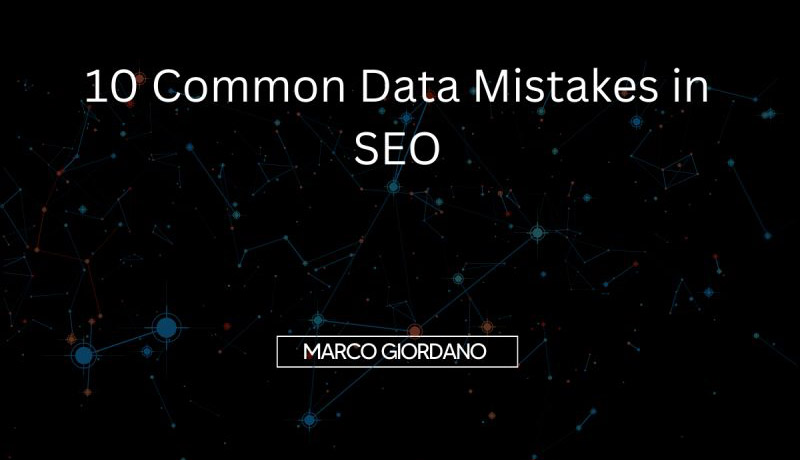
These are quite dangerous for your websites.
Here we go 📈:
1️⃣ Mixing branded with non-branded traffic.
This completely destroys your reporting efforts for big brands.
A big NO for Enterprise SEO but not a big deal for websites with weak brand recognition.
This gets the first spot because it's so wrong for big websites.
2️⃣ Not cleaning data.
Analysts normally clean them and spend a lot of time to figure out if they make sense.
Non-technical people just go for the insights, that's super wrong.
This is the difference between making money and losing it.
3️⃣ Wrong comparisons.
Comparing 3rd-party estimates to Google data or benchmarking different time periods.
It makes no sense, c'mon.
You can be lucky the first few times, but later you'll only do damage.
Don't compare data without a complete understanding.
4️⃣ Understanding your metrics.
Every metric in GSC is sneaky, those details that can invalidate your insights.
Studying what those data mean can save you a lot of headaches.
Check Google documentation to see how they calculate them.
5️⃣ Thinking that a spreadsheet can replace a database. No, it can't.
They serve completely different purposes, they are not alternatives.
This is a super common problem in enterprises.
6️⃣ Analyzing too much. People want the short version unless your insights are gold.
Don't waste too much time on data, find what you need and then take action.
Don't spend money on tools or tech if you don't have a good staff first.
7️⃣ Thinking that code is the panacea.
An analyst is paid to interrogate data (and people) and to add value.
The code is only a means to achieve an end. That's the difference with developers.
8️⃣ Thinking that it's just hard skills. Nah, analyzing data requires abstraction and hands-on experience too.
That's why you have to develop a critical spirit and practice.
9️⃣ "SEO is different!" It's just a domain like any other.
In our case, we only care about websites but the ideas are the same.
What you need is knowledge of actual SEO compared to people analyzing other types of data.
🔟 Treating audits like a list of things to do. It's not wrong BUT... they're often a compilation of basic stuff.
Give actionable advice instead.
Other articles:
























 2,387
2,387



















